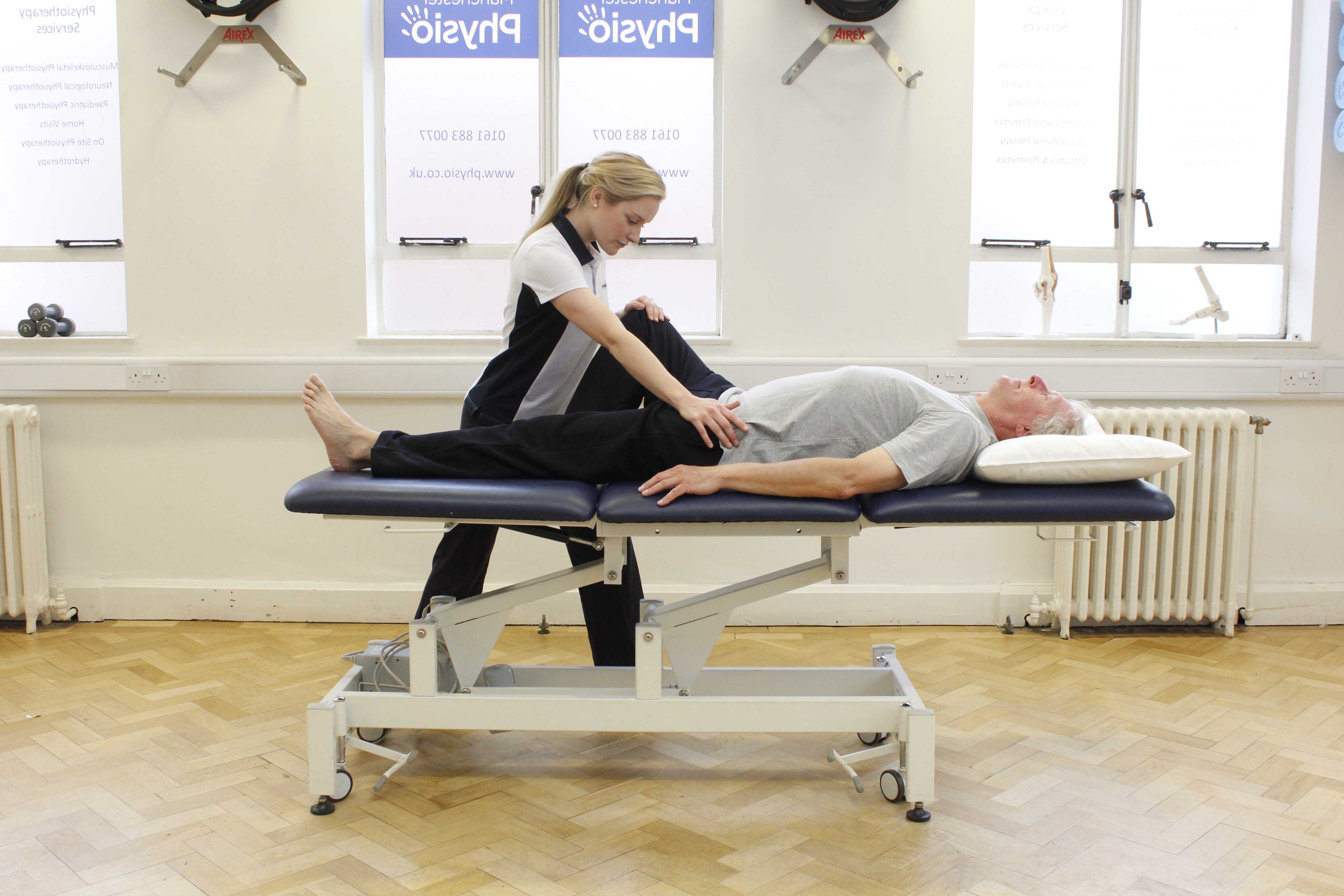What is conversion disorder?
Conversion disorder is a condition where patients present with physical symptoms such as numbness, weakness, gait disturbances and seizures but lack objective neurological explanation to verify these symptoms. It is thought that this occurs due to an underlying psychological problem, such as stress, emotional conflict or depression which is ‘converted’ or presents as a physical symptom.
 Above: Pelvis and hip abduction stretches assisted by specialist physiotherapist
Above: Pelvis and hip abduction stretches assisted by specialist physiotherapistCauses of conversion disorder
The true cause of conversion disorder is unknown, however, it is presumed that problems arise from difficulties in an individuals’ life such as anxiety and depression which has an impact on a person’s ability with everyday tasks. Over half of people with conversion disorder have personality disorders or hysteria.
What are the symptoms/effects of conversion disorder?
The symptoms of conversion disorder include motor or sensory problems such as:
- Weakness/paralysis of a limb or the entire body
- Impaired hearing or vision
- Loss of sensation/abnormal sensation
- Impairment or loss of speech
- Pseudoseizures which resemble epileptic seizures, but are not caused by electrical disruptions in the brain
- Fixed dystonia - involuntarymuscle spasm leading to fixed posturing of the affected body part
- Tremor and muscle twitching (myoclonus)
- Gait problems
- Difficulties with balance
- Syncope (fainting)
Physiotherapy for conversion disorder
Physio.co.uk provide individualised assessment, treatment and rehabilitation for people with conversion disorder. Physiotherapy treatment at Physio.co.uk will focus on helping you manage your current physical symptoms in order to improve your independence with daily activities. Your physiotherapist at Physio.co.uk will initially assess your movement, muscles strength and posture and develop treatment goals which will be centred around:
- Improving muscle strength
- Improving cardiovascular endurance
- Normalising walking pattern (gait)
- Improving balance and coordination
- Improving joint range of movement
- Increasing confidence and sense of well-being
- Improving quality of life
- Exercises to improve trunk stability
- Breaking down functional tasks such as standing and walking
- Practising supportive and independent walking
- Activities to improve balance
- Strengthening and conditioning exercises
- Hydrotherapy treatment to strengthen muscles in a relaxed environment
For more information, or to book an appointment please call 0330 088 7800.

 0330 088 7800
0330 088 7800


































